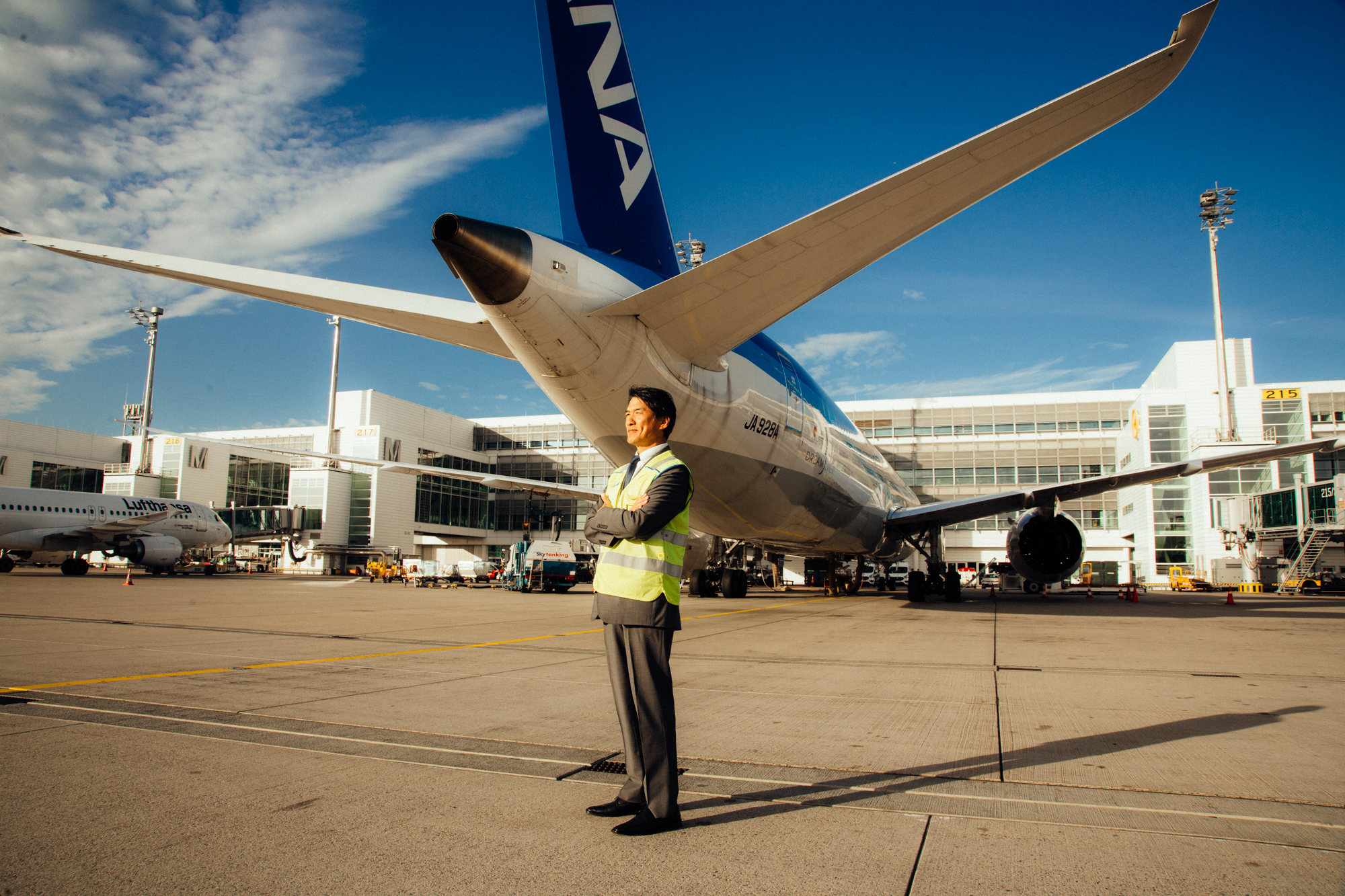One often overlooked similarity between Japan and Germany is the large number of globally renowned stationery manufacturers in both countries. The PLUS Corporation, which celebrates its 75th anniversary this year, offers office supplies and stationery in Germany with excellent design and high functionality, especially for businesses. These include everyday items as well as unusual products that make working life easier. In this issue, we spoke to Mikiko Horioka, Managing Director of PLUS Europe GmbH in Duesseldorf, about the differences between doing business in Germany and Japan and the future of the industry. We also had the opportunity to take a closer look at some of the products on site.
J-BIG: Ms Horioka, what can you tell us about the beginnings of PLUS?
Mikiko Horioka: The origins of the company date back to 1948, when two wholesalers, Imaizumi Shoten and Suzuki Shoten, merged. At that time, both companies dealt in office supplies and had branches in the same region. Although they were competitors, they were so close that they would lend each other goods when one had a shortage. After some time, they decided to work together and in 1948 they founded Chiyoda Stationery, named after the region where they were located. In 1959, the company name was changed to PLUS Corporation. On the one hand, the name reflected the idea that the two companies had merged – in a sense “added up” – and on the other, it signalled that they wanted to create added value for society. Since then, the company has continued to develop and is now a full-fledged stationery and office furniture manufacturer with its own development and production.
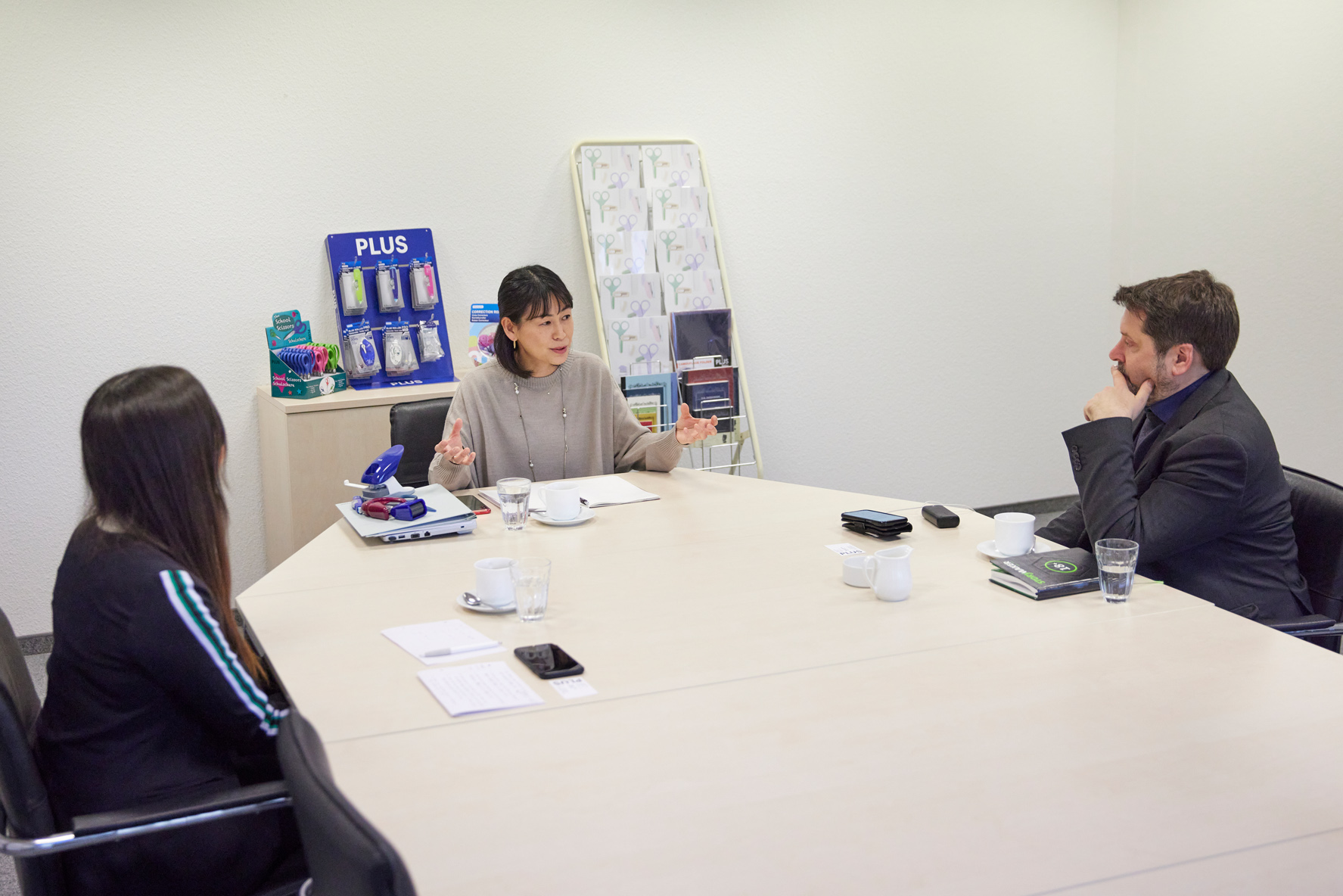
J-BIG: What was your professional background before you became Managing Director of the German branch?
Mikiko Horioka: After graduating from university, I first worked for an American IT company in Japan, where I gained experience in systems engineering and sales. Although I was under time pressure every day, I was able to learn a lot and was lucky enough to work with many nice people, so I enjoyed my time there. However, about 20 years after joining the company, I wondered if this was what I wanted to do for the rest of my professional life and started to think about new challenges. There were two things that were important to me in choosing my new job: First, I wanted to do something where I could introduce the charm of Japanese products to other countries or, conversely, bring foreign products to Japan. Secondly, I had previously worked in the IT industry, where I was mainly involved in services. In my new job, however, I wanted to work with physical, tangible products. When I was looking for a new job that met these two requirements, I came across PLUS, and I have been working there as Managing Director of PLUS Europe since April 2019.
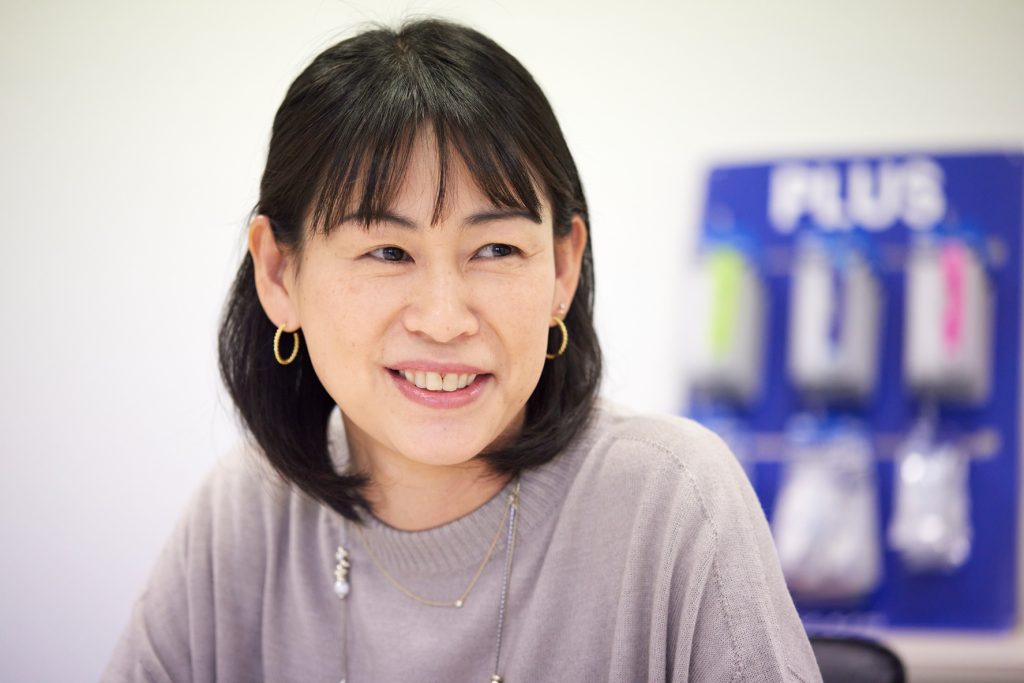
J-BIG: How big is the PLUS Group as a whole and what is the relative size of the German subsidiary?
Mikiko Horioka: The turnover of the stationery business, including all subsidiaries of the group, is about 242 million euros (38 billion yen). Of this, about 40 per cent comes from international business, especially in Asia, with China as the largest market. The stationery business has offices and factories in the USA, Europe, China, Vietnam and Taiwan. The biggest market in Europe is Germany. The turnover in this country is about 6.4 million euros (one billion yen) and, including me, we have eight employees.
Free Subscription
“J-BIG – Japan Business in Germany” is the e-mail magazine dedicated to Japanese companies and their business activities in the German market.
J-BIG: When did the company start operating in Germany?
Mikiko Horioka: Our activities in Germany started in 2010, when PLUS Europe was established in Duesseldorf. We were already operating in the US and Asia and decided that Europe should be the next step. We chose Germany as the first location for our European expansion because there are many stationery manufacturers here and it is the largest market for stationary in Europe. Although a large number of stationery manufacturers in Germany naturally also means competition, we felt that consumers here were particularly good at judging and appreciating the quality of our products. Today, PLUS Europe is the only European subsidiary of PLUS Corporation. From here we steer the sales and marketing activities not only for Germany, but for the whole of Europe.
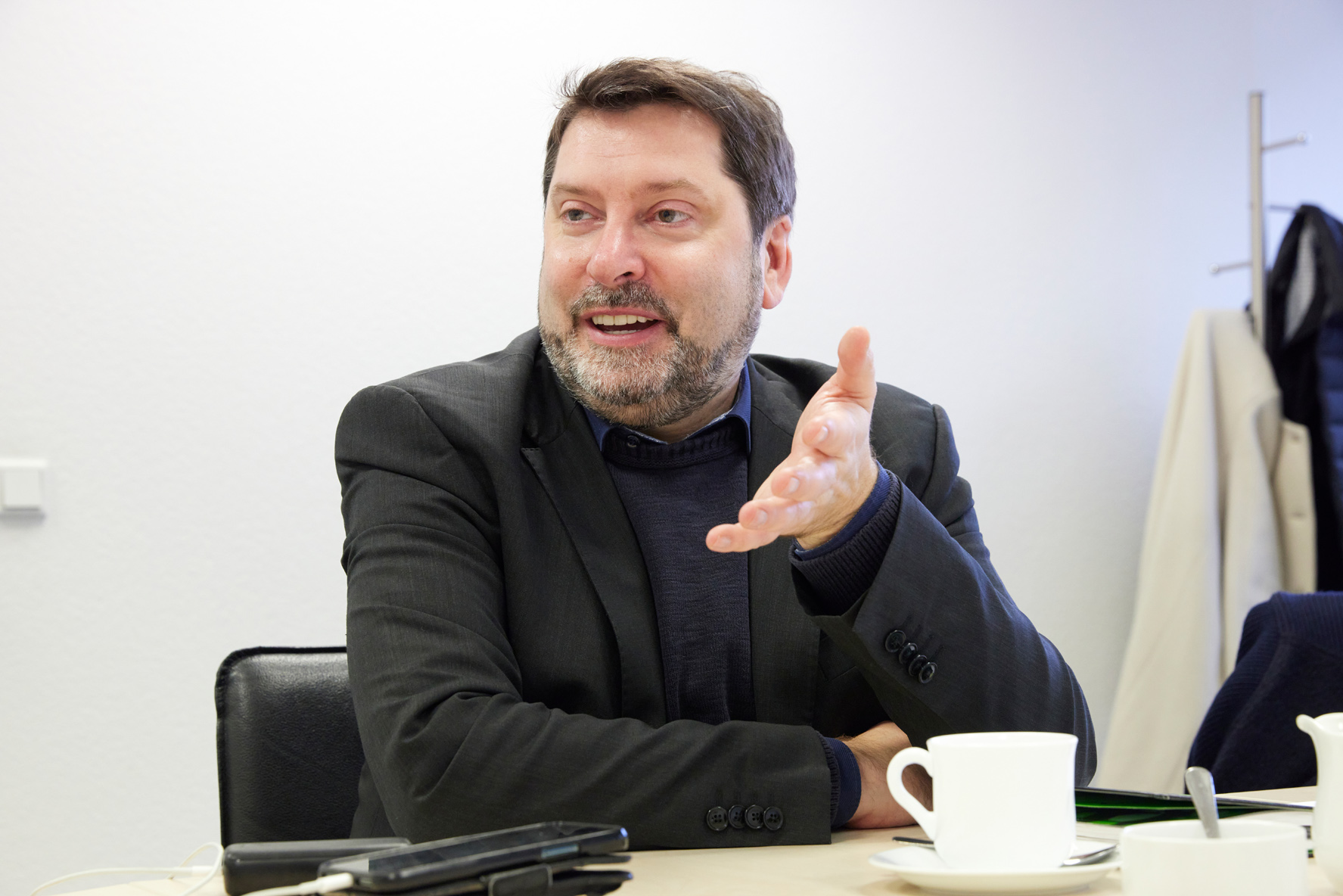
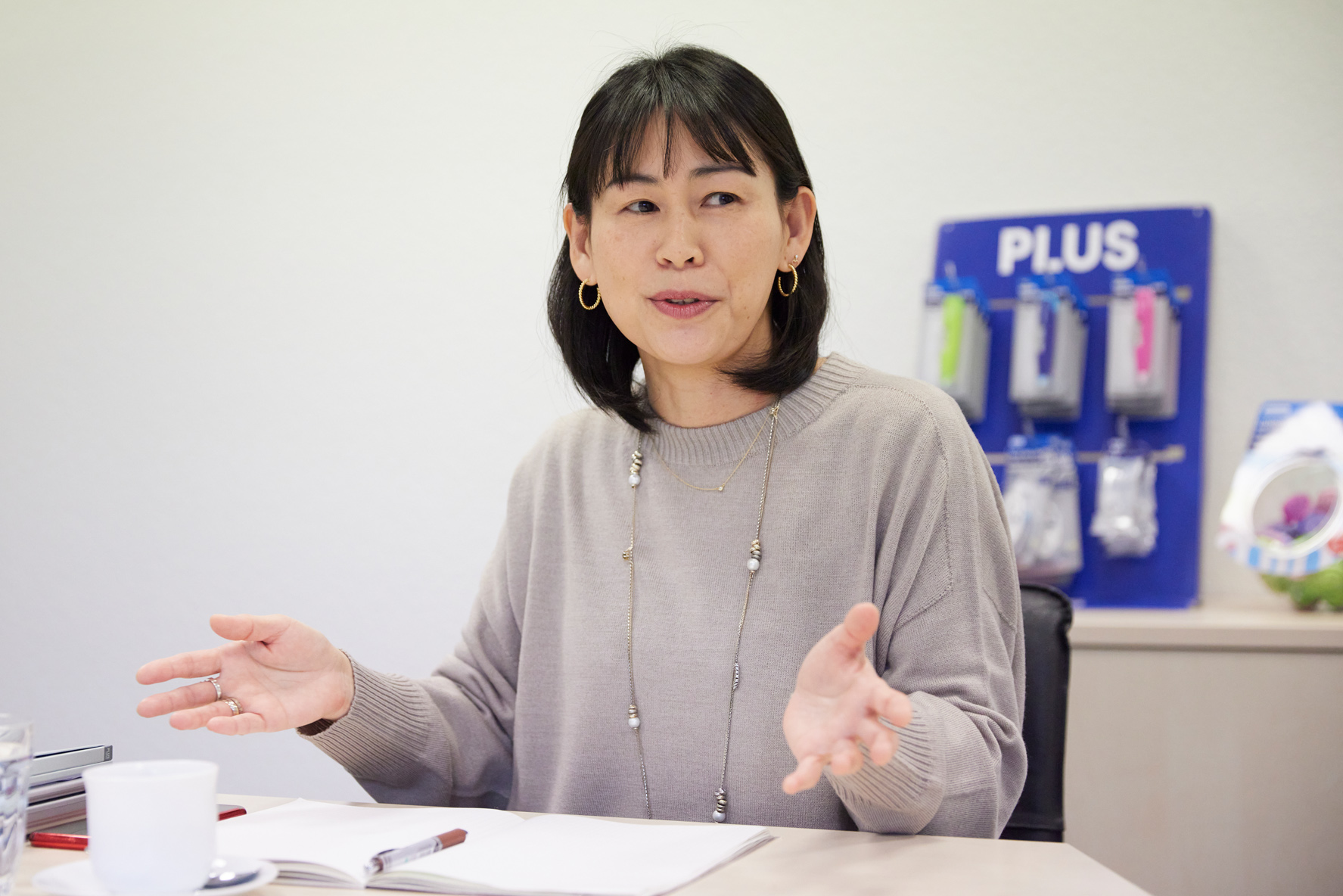
J-BIG: How do you position your company in a highly competitive market like Germany?
Mikiko Horioka: It is true that Germany is a stronghold of the stationery industry. But we are a company that puts a lot of emphasis on original products and exceptional design, and I think that is where we differ from other stationery manufacturers such as Leitz. According to our company philosophy “New Value, New Satisfaction”, we want our products to offer people in Europe an added value that they can’t get anywhere else.
J-BIG: What exactly makes your company’s products so unique?
Mikiko Horioka: Let me give you two examples. The first is the staple-free stapler. Not only is it less dangerous, but it’s also environmentally friendly because you don’t have to worry about separating waste when disposing of stapled paper. The stapler also gets very good reviews on websites such as Amazon, and sales are increasing.
The second example is Zeromax, a document folder with adjustable width. At first glance it looks like a normal paper folder, but its spine can be extended to a width of 10 cm and holds up to 800 sheets. Since the dimensions can be changed according to the number of documents, it saves space on the shelf – especially when it comes to archive files that grow over the years but initially contain only a few documents. Hospitals, for example, use this system to store patient records.
The key factor in selecting the products we bring to market is whether they add value for European customers. We believe this is what makes PLUS Europe important in the European market.
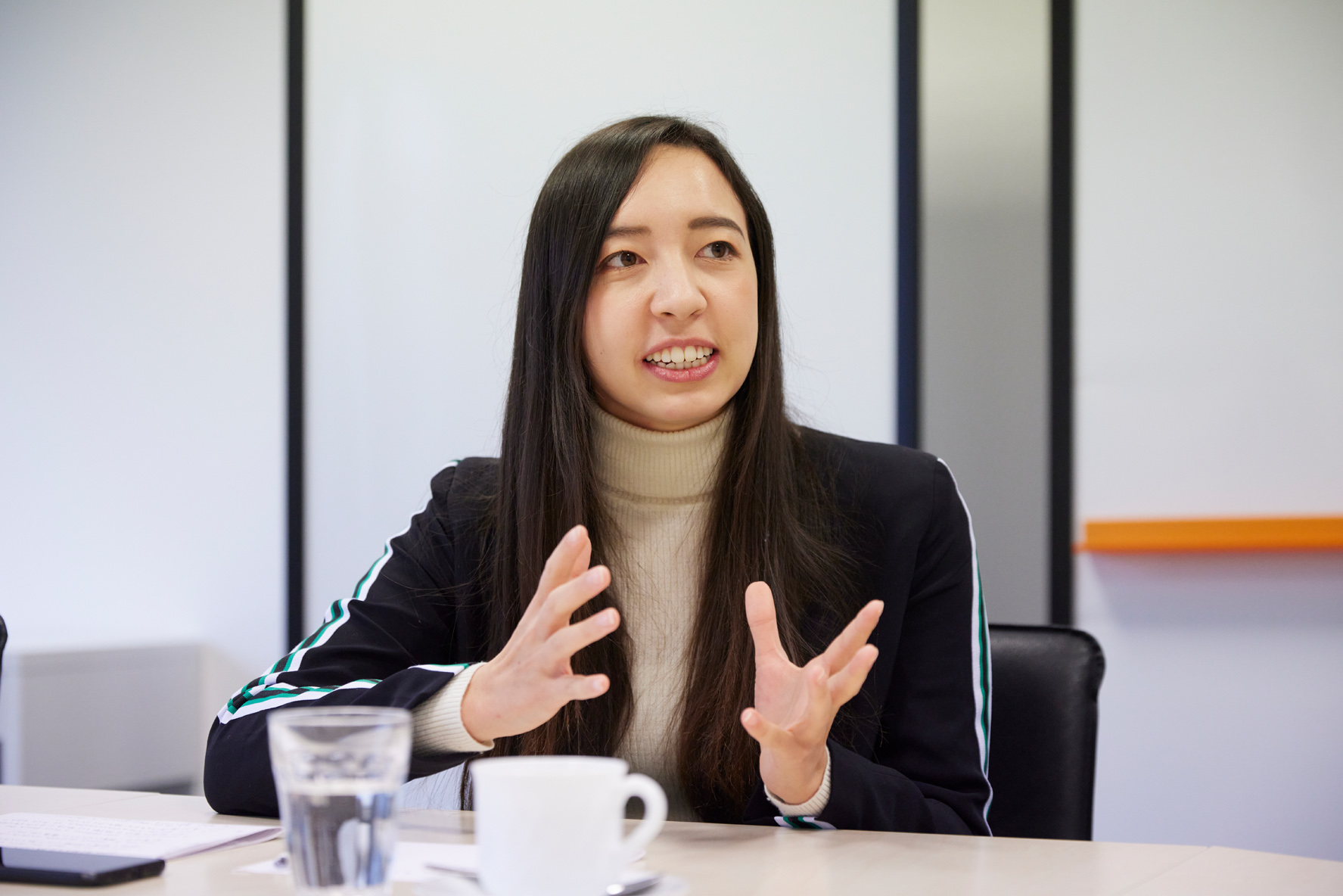
J-BIG: Can you elaborate on how you define this added value for the customer?
Mikiko Horioka: We believe that the true value of a product lies not only in its functionality, but also in the fact that it brings joy to people and makes them happy when they use it. We are very passionate about stationery. It might be ‘just’ a commodity, but it can be very frustrating if it is not comfortable to use. That’s why we always want to offer products that people enjoy and get excited about.
J-BIG: What are your main distribution channels in Germany?
Mikiko Horioka: In Germany, they are mainly office supply wholesalers and specialist office supply retailers such as Otto Office and Printus. Amazon is another important distribution channel and has been growing since 2017. E-commerce sites are also a good way to get direct customer feedback through reviews. In other European countries, we work with distributors.
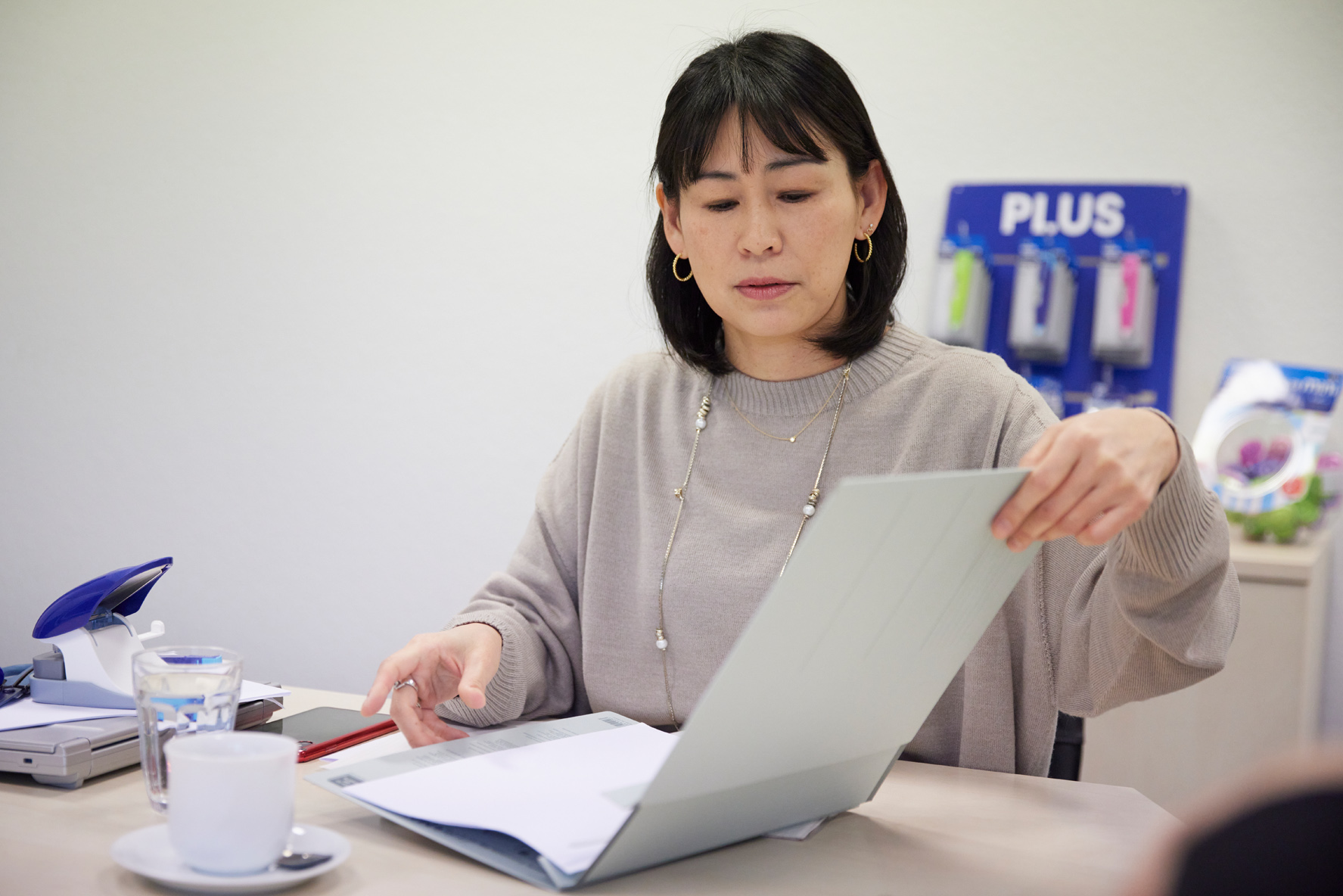
J-BIG: What challenges have you encountered in developing your German business, and which ones are you facing now?
Mikiko Horioka: One challenge was that PLUS does not yet have a high profile in Germany and Europe. Although we have tried to enter the market with new products such as the staple-free stapler and the Zeromax folder, it has been very difficult to gain a foothold here. In Japan, the name of a specific stationery product is often much better known than the name of the manufacturer. In Germany, on the other hand, we have the impression that the company name is often better known than the product name.
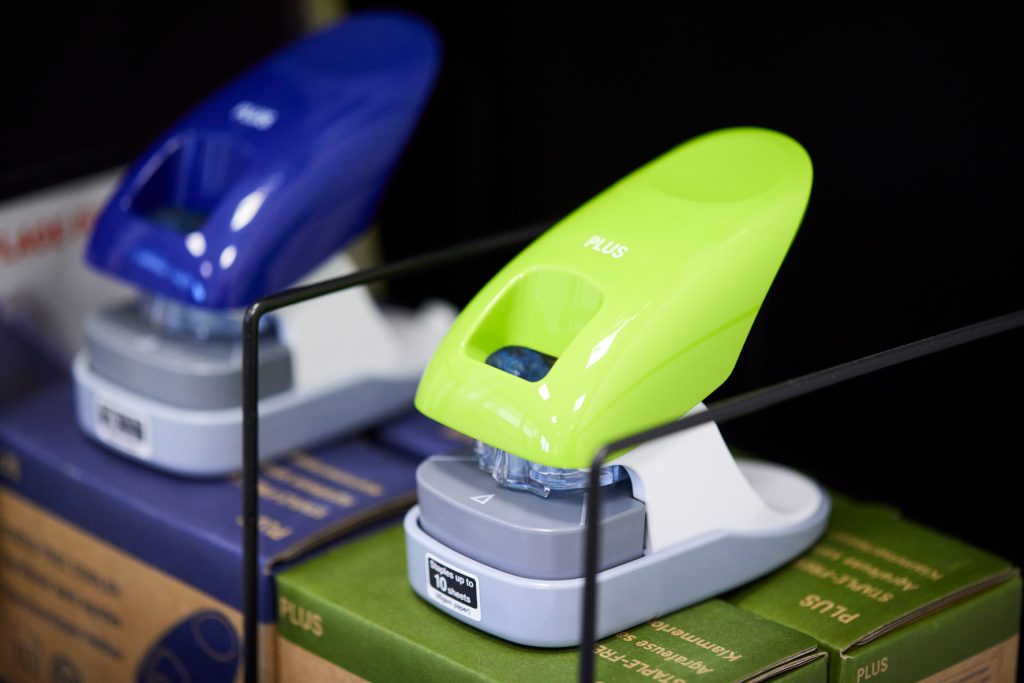
Another challenge is that it can be difficult to see the functionality and benefits of an unusual product like the staple-free stapler at first glance. Many people have little idea of what the term means. Even if they know that it is a stapler that does not use staples, they do not understand why this is so advantageous. It’s only when you actually pick up the product and use it that you realise how environmentally friendly it is, because you don’t have to dispose of the staples separately, and how practical it is, because you don’t have to buy extra supplies. This is why many people inevitably reach for the familiar stapler first.
To get around this problem, Amazon sales are a good place to start. Here we can show the most important product features and functions in the form of videos and communicate them directly to the customer. Many positive reviews can also lead to further sales. Recently, we have also been using social networks more and more to explain and communicate the benefits of our products in the best possible way. We have been in Germany for twelve years now, and our sales are growing steadily with our experience.
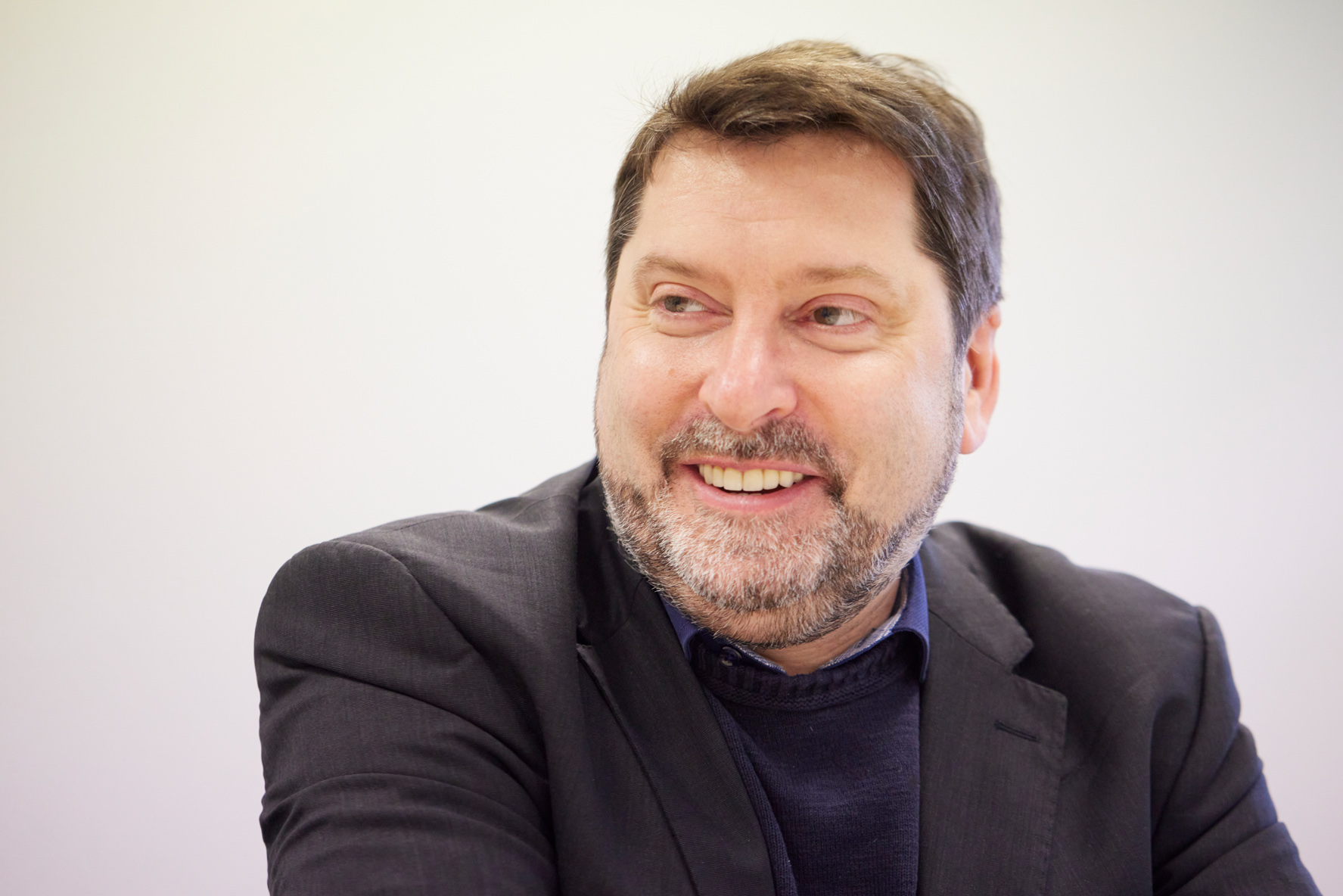
J-BIG: What are the differences between product development in Japan and Germany?
Mikiko Horioka: In Japan, there is a special target group of middle and high school students who collect stationery with cute designs. These students, especially schoolgirls, like pastel colours and adorable characters on their stationery. In Europe, this target group does not exist in the same way, which makes a big difference. Our company develops these products for Europe as well, but because students here have different buying habits, they don’t sell as well as they do in Japan. Cute, pastel-coloured stationery, which in Japan is usually aimed at high school students aged around 17, is aimed at boys and girls aged 6 to 10 in Germany. These differences in target groups and needs sometimes make it difficult to market products developed in Japan in Europe.
J-BIG: Are there any products that have been specially adapted for Germany?
Mikiko Horioka: We have not localised any of our products for the German or European market. We don’t want to change the products dramatically to adapt them to the European market. Even if we talk about the “European market”, tastes and product preferences differ from country to country, and we don’t think it makes sense to look for the broadest common denominator. For example, when PLUS Europe was established, we initially developed packaging based on German standards because that is where we are based, after all. But while muted colours are preferred in Germany, we sometimes heard from customers in other countries that the packaging was too dark. In the end, we came to the conclusion that as a Japanese company, we should put Japanese sensibilities first and trust our instincts.
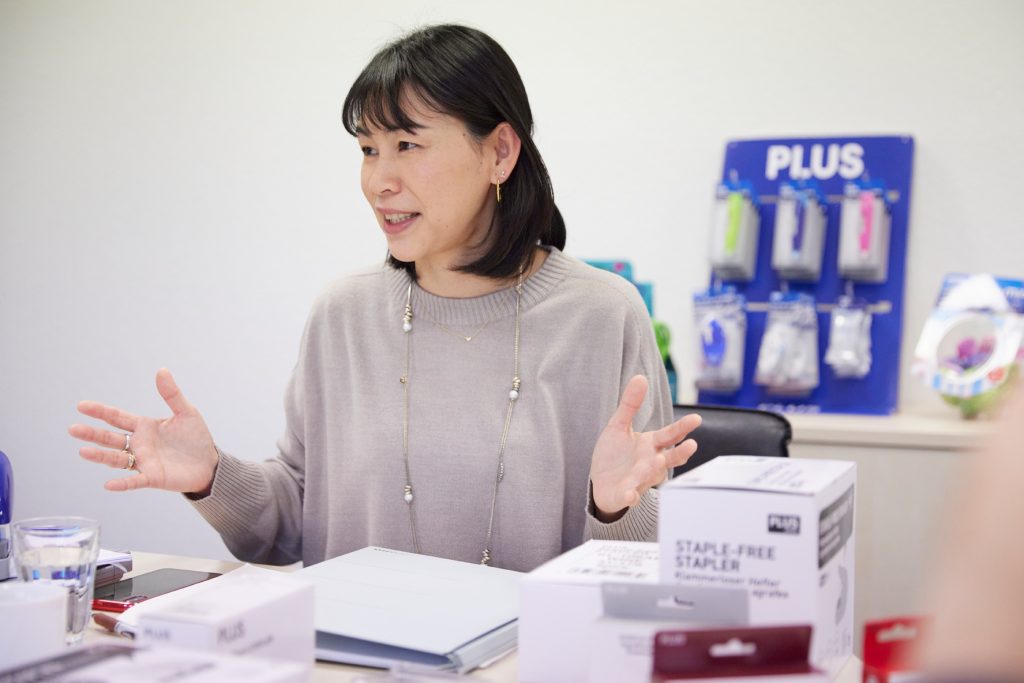
However, there is still a difference when it comes to packaging. Europeans are very sensitive about sustainability, and recently the regulations for single-use plastic packaging have become stricter. So PLUS Europe started a project to switch our packaging to paper boxes. In some cases, this has halved the size of the package, resulting in lower transport costs. In Japan, however, product quality is so important that sometimes over-packaging is still used to protect the product from damage. PLUS Europe takes these issues seriously and addresses them proactively, while at the same time feeding back developments in Europe to the PLUS headquarters in Japan.
J-BIG: How does PLUS Europe work with the Japanese head office and its management?
Mikiko Horioka: We are in daily contact with the colleagues at the Japanese head office who are responsible for the European business, and we talk to them about a variety of topics, including sales, products and operations. Of course, management is also involved in discussions about important strategic developments. At the moment, PLUS is looking to expand its international activities from 40 per cent to between 60 and 70 per cent. It can therefore be said that headquarters is very interested in growing its business in Europe and in working with PLUS Europe to achieve this.
In particular, PLUS Europe regularly reports on developments in the region. In this way, head office can learn from Europe in areas where it is a leader, such as sustainability, and, for example, develop more environmentally sustainable products. For example, the idea of more sustainable packaging was taken up by the headquarter at the suggestion of PLUS Europe. Both are now working together to follow European trends and specifications in this area.
Europe is probably the world leader in recycling initiatives. It can be said that most current measures were essentially started in Europe. Japan, on the other hand, is still lagging behind. I believe that similar regulations will be introduced in Japan in the future. So I think it is very good that we can pass on these advanced European solutions to our headquarters.
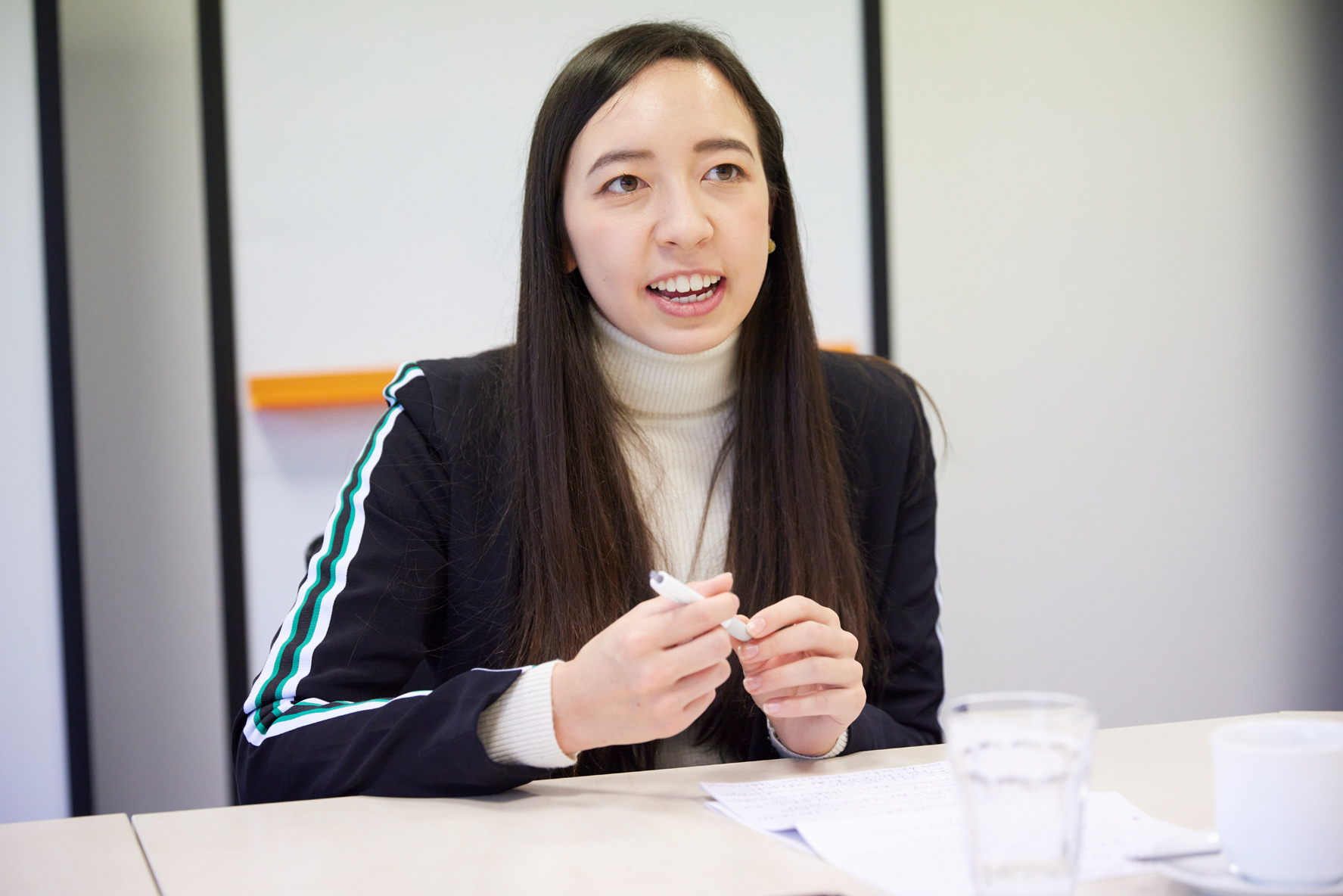
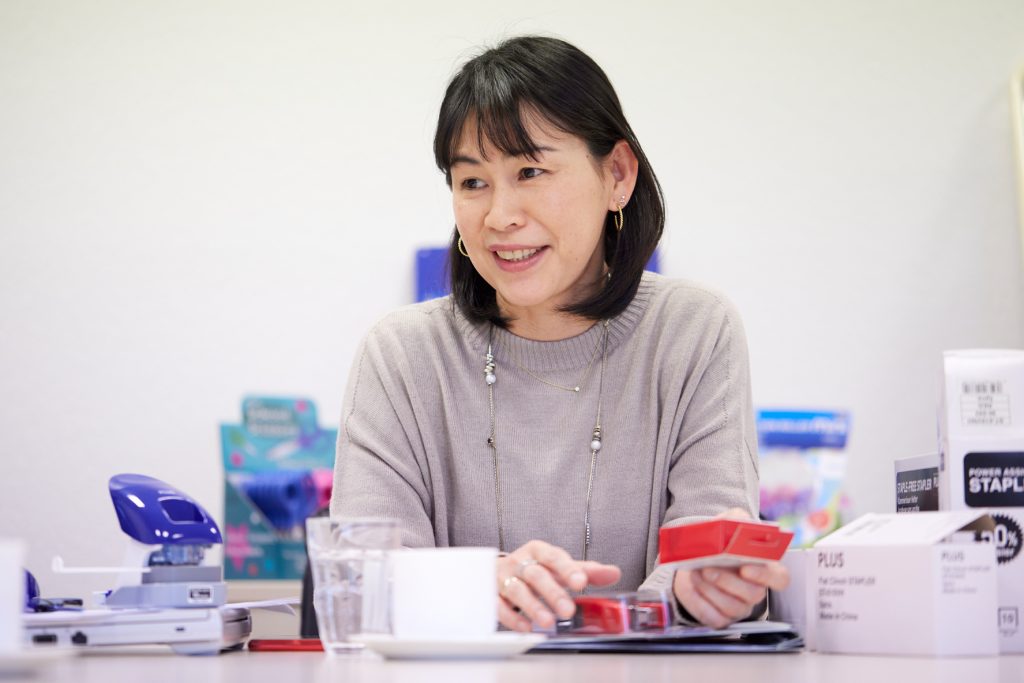
J-BIG: What would you like your company’s German office to look like in five years?
Mikiko Horioka: Last year, PLUS acquired the shares of Pentel from Kokuyo, which will be integrated into the PLUS Group as a consolidated subsidiary this year. Pentel is a leading stationery company in the European market, and we want to promote the expansion of PLUS products through Pentel’s excellent distribution network. Building the European business through this cooperation is something that the PLUS management has very high hopes for. As I mentioned earlier, our brand awareness here is still in its infancy, which means that it is sometimes difficult for us to reach the customers we should. That is why I really hope that we can expand our distribution channels through this cooperation. My hope is that, in five years’ time, our brand and products will be better known and even more popular in Europe.



